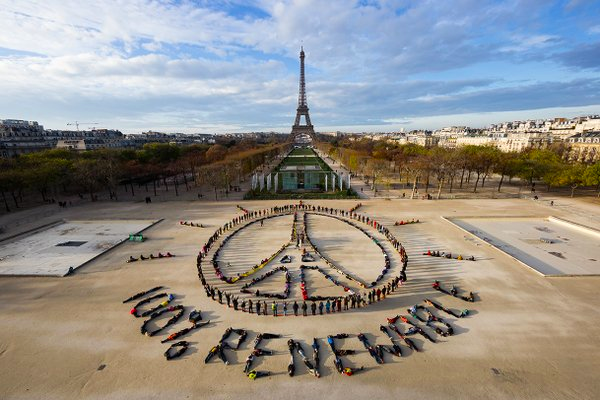John Key has responded to more than 35,000 climate action marchers by smugly claiming that because 80 per cent of our electricity comes from renewable sources, we’re respectable. Such a boast is irrelevant to the task at hand – reducing carbon emissions to zero (and beyond). We’re still one of the highest carbon emitters per capita and have to stop it.
We know that there’s a fixed amount of carbon the atmosphere can take before we enter the realm of dangerous climate change. The 2009 Copenhagen agreement settled on 2C of warming as the limit above which danger and instability will be upon us. We know the global average temperature is already up around 1C – halfway there – and most of that has occurred over the last 30 years. And we know that under current targets offered, emissions from the United States, China and Europe alone will use up virtually all the headroom that is left.
So without radical changes we will exceed 2C. The challenge now is not just to reduce carbon emissions to zero, but to actually remove carbon from the atmosphere.
Even with that mountain to climb, we have to instigate enough adaptation policies to weather the storm that will prevail until the atmospheric carbon concentration gets back down to a “less than dangerous” level.
This is why the majority of public submissions to our Government on our contribution to emissions reduction by 2030, was for emissions of 40 per cent below 1990 levels. Tim Groser has gone to Paris offering an 11 per cent reduction. It’s pathetic.
The Government has presented a ropey analysis of the high costs of doing any more to reduce emissions. The work is so bad and so misleading that it should damage any reputation of honesty. From what I have seen of the document I don’t blame the modellers for this analysis, I blame the Government for asking them to include stupid assumptions. Examples include no scope for new technology uptake, the exclusion of any initiatives with forestry and an unrealistic baseline case that ignores initiatives under way.
New Zealand’s costs of reducing emissions are certainly higher than they should be, and this is because our track record on emissions has been so negligent. Unlike many developed countries our emissions have grown significantly since 1990, which makes it far more costly to reduce them to the levels other countries are promising. The reluctance of the deniers and the timid who have held sway in successive governments to address the risks from climate change has driven up the cost of reduction to New Zealand. The longer we delay the greater this bill will become, and the more likely we are to become an international pariah on the per capita emissions metric.
Despite ruling out technology in their cost modelling, ministers have publicly placed infinite confidence in technology changes down the track that will come to the rescue and allow us to catch up to achieve a 50 percent reduction in emissions by 2050. Without policies to encourage the development and uptake of this technology there’s no basis for the claim. It’s ideological faith akin more to the zeal with which the Religious Right expresses its beliefs.
We’ve been here before. Remember Sir Robert Muldoon’s Think Big where he ignored the possibility that he might be wrong about a high price of oil, and indebted the nation to fund his “Think Big” energy projects? The oil price collapsed and New Zealand was quickly in the financial crap. So it is with John Key’s decision to do little about climate change and rely on technological progress. There is no analysis whatever from the Government on the cost of that faith being wrong. It’s one thing to exaggerate the costs of stronger action, it’s quite another to ignore the costs of no or minimal action.
Talking about Think Big, one of those madcap schemes was the Tiwai Smelter and the Manapouri Dam constructed to supply it. The climate threat provides a great opportunity to turn that pig of a decision into a silk purse by terminating the smelter deal and using that renewable energy to electrify the vehicle fleet. That would be leadership rather than lethargy.
New Zealanders should be embarrassed to see the Prime Minister boasting about our renewable energy when our track record of emissions increases reveals our true behaviour.

